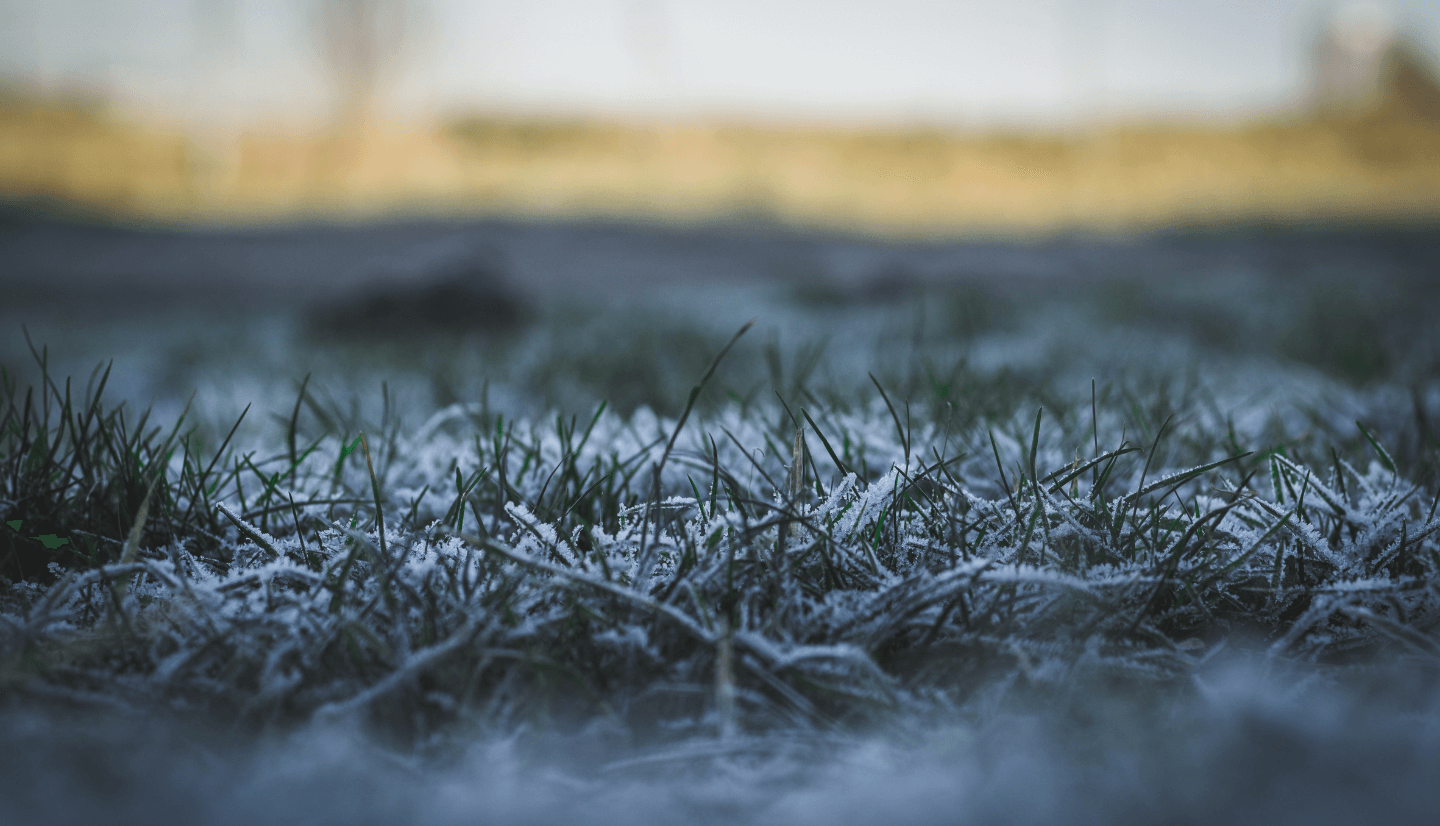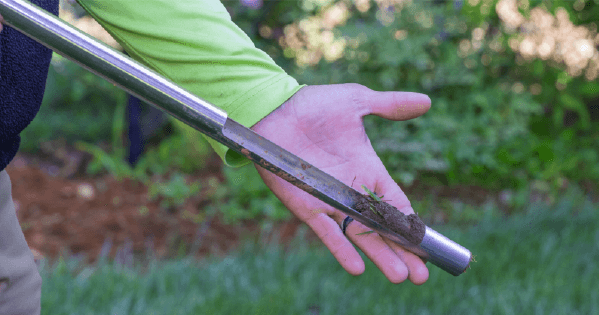Late Winter Lawn Care from Simply Green

The best time to prepare for a healthy spring lawn is right in the middle of winter. This colder season of dormancy is not a time to take a break from lawn care. To keep your grass and landscape healthy during January, February and March, best maintenance practices to ensure a nice green up come spring.
Tips for Winter Best Practices
Keep in mind the following tips for the best winter care of your lawn, especially if your turfgrass is Zoysia. This type of grass recovers slowly from the stressors of cold, wet weather, disease, insects, and improper maintenance. Well-maintained zoysia is essential for its long-term health. Zoysia lawns rarely perform well in less than six hours of sun after two to three years. Therefore, following proper lawn maintenance practices is essential to the spring health of Zoysia and other warm-season turfgrasses.
Remove Debris: Keeping your Georgia lawn free of debris is the number one thing you can do to keep soil and grass free to receive necessary oxygen and nutrients. Things like leaves, fallen branches, and thick weed patches will be essential to creating a healthier spring lawn.
Tread Lightly: Grass is fragile during winter, so avoid walking on it, especially during the early morning frosts and other times of freezing. It’s best to delay activity until the frost has melted.
Light Mowing: If it’s not a snowy winter, give the grass a light mow, setting the mower to a low setting for the final cut of the season. Check the calendar for the right mowing schedule for your type of turfgrass.
Water as Needed: Turfgrass needs proper hydration, even during winter. If Georgia experiences a dry season, it’s best to water the grass to keep it hydrated properly.
Soil Test: Conduct a soil test to determine nutrient levels as well as pH of the soil. Use the results to create a winter care plan for your lawn that can include aeration and fertilization. Simply Green Lawn Care Plus technicians can evaluate your soil and advise the best maintenance plan.
Aerate: Consider aerating the soil if it’s compacted. This will perforate the soil with small holes which will allow air, water, and other nutrients to penetrate roots effectively.
Fertilize: During the dormant period, it might be a good idea to apply a winter fertilizer to ensure proper nutrition for your grasses. Simply Green Lawn Care Plus can help determine if this needed and what type of fertilizer is best.
Control Weeds: Inspect your lawn for any winter weeds and get rid of them by either pulling them by hand or applying a post-emergent herbicide.
Planning for Spring
After a long season of mowing and lawn care, winter is no time to take a break. These months should be spent on proactive maintenance and planning for spring.
- Inspect Equipment: Winter is the best season for inspecting lawn equipment and give lawn mowers, weed whackers, edgers, and other tools a tune up to make sure they are ready to perform come spring.
- Seeding and Landscaping: Create a plan for seeding and landscaping during the winter months so you will be ready by late March to begin the process of greening up your lawn. If you plan to overseed or reseed your lawn, now is the time to begin considering what type of grass you would like to plant and how to care for it. Always tailor your lawn care routine to the specific needs of your turfgrass.
Need Help?
The key to a beautiful landscape in the springtime, is good preparation now. If you are not sure where to start, Simply Green Lawn Care Plus experts are here to help with a free lawn consultation. Call for an appointment today to get started on the right maintenance plan.
About Simply Green Lawn Care

Simply Green aims to provide the highest quality lawn care, mosquito control, and lawn pest control services to Georgia residents.
We are locally owned and operated which allows us to be accessible, attentive, and responsive for customers in Georgia.
Our well-trained team is easy to work with and determined to exceed expectations.
All our plant health care specialists are Georgia Department of Agriculture Certified and maintain their Category 24 applicators license.


